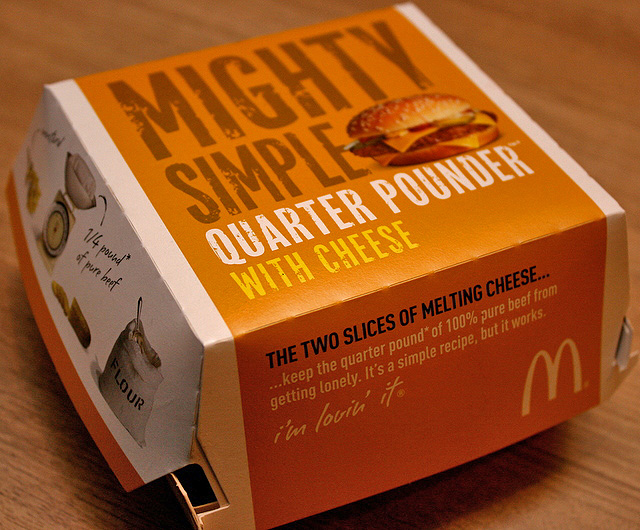"I guess the real question is, how much are you willing to pay for healthier foods? Is it worth it? What should these poor people do?"
This begs the question, what is the solution, but I'm not sure that there is one. Speaking more broadly, the solution to any large scale problem like this one is ultimately going to be "solved" by equilibrium. And I put solved in quotations because oftentimes the solution isn't a positive one, but rather an even worse fate that relieved the stresses of the first problem.
Darwinian evolution is the idea that life as we know it responds and adapts to pressures from the environment. As discussed earlier, public intellectuals are in place to poke and prod society in the right decision - to help them make decisions for themselves that are beneficial to themselves, even if they don't recognize it as such. But poking and prodding, say, in the form of educational programs to counteract America's poor eating habits can only do so much.
What we're seeking is a solution to do battle with literally hundreds of millions of years of evolution. Our taste receptors are so well tuned to find what tastes good (like a McDonald's quarter pounder) that we seek the easy way out when it comes to satiating our hunger. Ultimately many people choose to eat poorly, because quite frankly, bad food tastes good.
The second aspect of out poor choice is economic. Poor food is cheap. This isn't immediately recognizable as a result of evolutionary pressures, but it definitely is - in terms of resource management and sustainability.
All in all, I do agree that we, as Americans, need to change our eating habits but I fear that it won't be until serious pressures (that truly challenge our survival) will be eat healthier as a nation.



You bring up a couple really good points here, the first of which is that we have been hard-wired to go for three tastes: fat, sugar, and salt—basically the components of any value menu meal at McDonalds. The majority of people eat poorly because it’s easy to do so, and cheaper. But people that have the means to eat whole foods can and should do so. Second, I agree with you that it is going to take a real threat to our survival in order for people to actually change the way they eat. However, those who most need to change their eating habits right now due to a threat to their survival are those who have been diagnosed type II diabetes. Many of these people are from a lower income bracket, and in many cases cannot pay for their medication much less a healthy meal. You’re also correct that education alone will not solve the problem, change needs to come in the form of a collective effort. Great post—makes you think about what the actual solution to the problem should look like.
ReplyDeleteThanks for the link! (I'm bummed I didn't see this until now) I really don't know if there ever will be a solution though. Our society has become too dependent on fast food and anything with salt. Obviously for most, fast food is eaten because it is cheap and unless we somehow can subsidize agriculture and help out the farmers, fresh and organic produce is probably not going to be getting any cheaper anytime soon. Hopefully through education, support from the government and maybe a miracle worker.. slowly this can change
ReplyDeleteWith fast food so cheap and easily accessible, society has become addicted to these high calorie items. Low quality, high caloric foods with sparse nutrition are far cheaper than "boring", organic, expensive vegetables. It is unfortunate that there is limited education about nutrition. It is vital that we educate the public about healthy eating. Our nations health and overall well being is at risk if we fail to address these problems.
ReplyDeleteIt really is a difficult problem, with so many different sides to the issue. As you said, taste and price are two of the main factors when deciding what we want to eat. When dealing with lower economic classes, price will obviously affect their decision more than their wealthier counterparts. However, I also think that accessibility to healthy food is another large part of the problem. As others have pointed out, many inner city areas are what we call "food deserts", in which healthy food options pale in comparison to the amount of fast food installments in the region. I think that the government should do it can to offer incentives for healthier restaurants and stores to open shop in these areas, so that people living in these food deserts at least have a convenient way to access these foods.
ReplyDelete